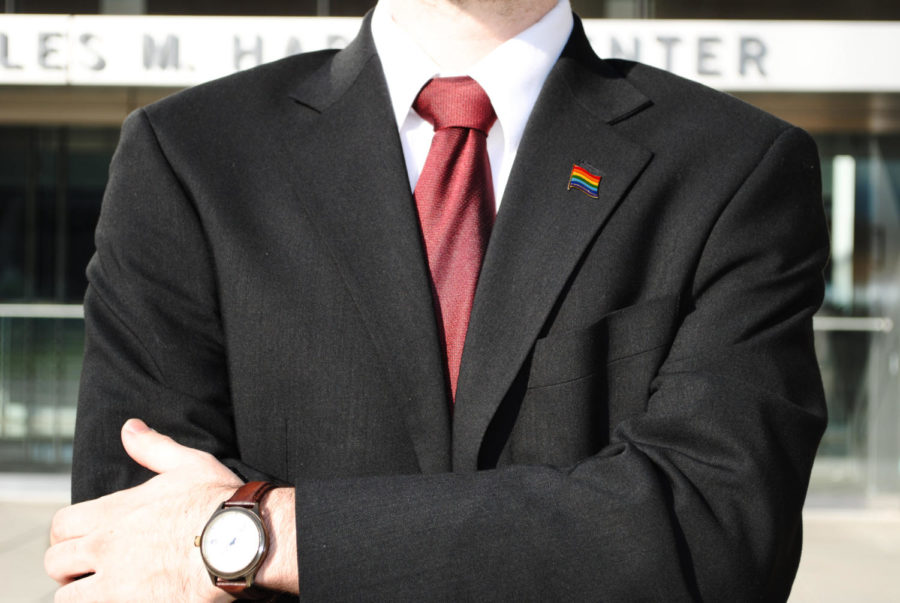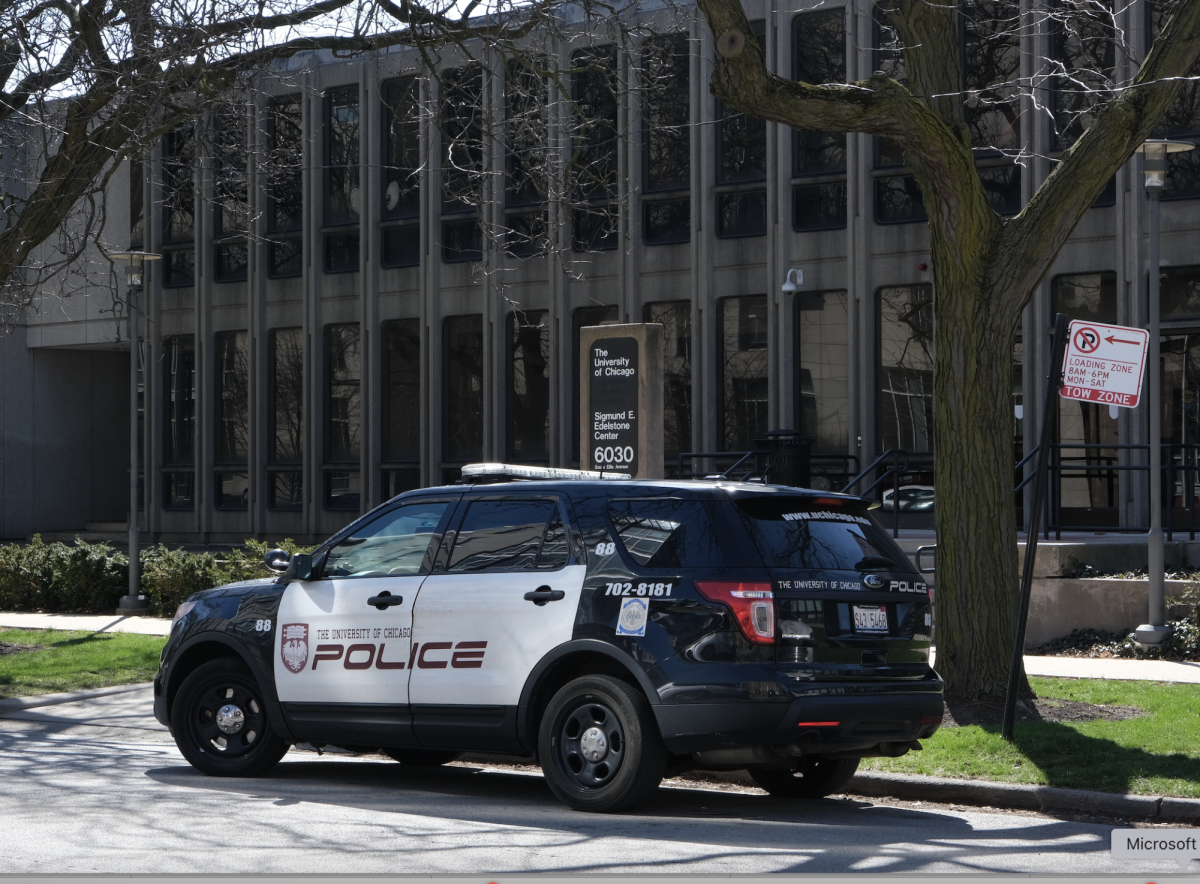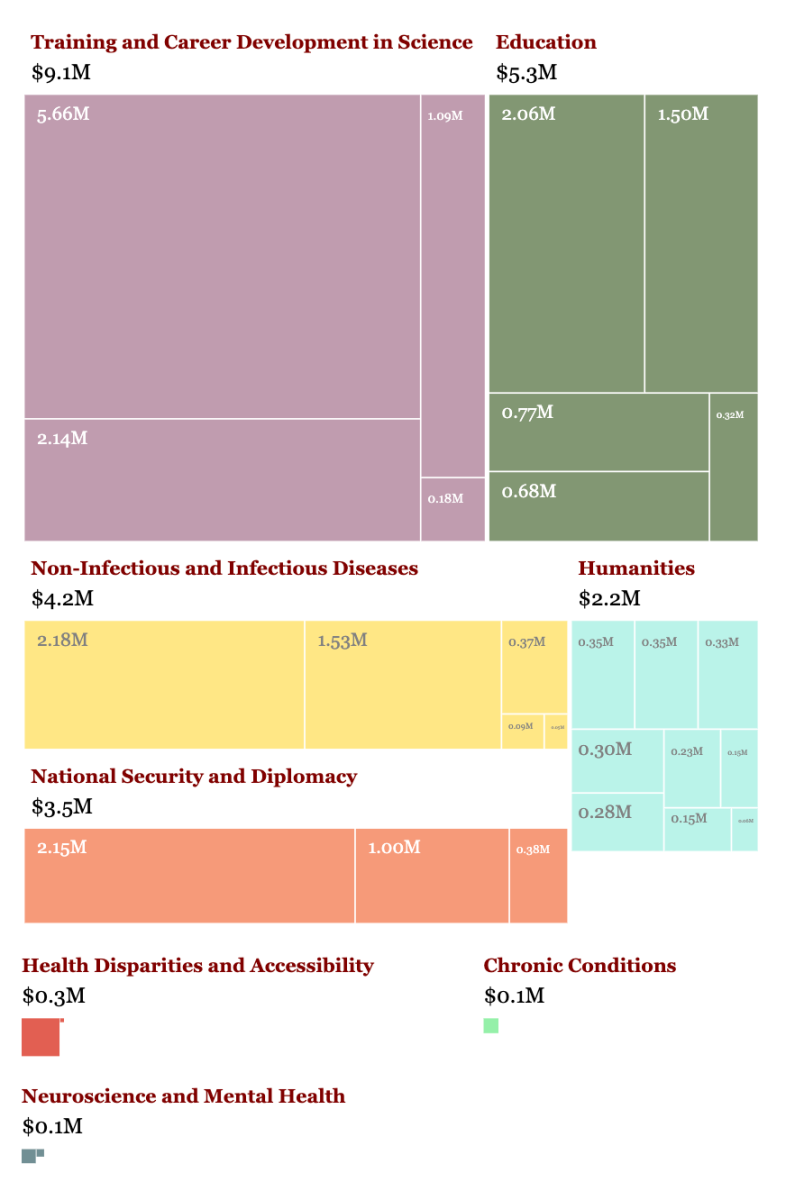From The Great Gatsby to American Psycho, the perception of the business world has long been tied down to the idea of an old boys’ club. Though the expression claims it’s better to be born lucky than rich, it also doesn’t hurt in the corporate world to be born white, male, and straight.
But while this stereotype might have been incontestable as recently as the Mad Men ’50s, employers are increasingly looking for diversity in the workplace. And at the Booth School of Business—where recently some 450 students signed an LGBTQ “ally pledge,” earning each a rainbow ribbon for display on their locker—a new career outlook is being fostered that focuses on the benefits of being out in business.
Each signature represented a promise to stay informed, speak out, be honest, support equality, and “come out…as an ally.” The pledge was organized by OUTreach, the LGBTQ student group at Booth, which currently consists of 20 LGBTQ students and has brought in hundreds of allies.
The leaders of OUTreach acknowledge that there is a stereotype that the business school environment doesn’t cultivate LGBTQ tolerance, but after almost doubling the number of signatures they gathered last year, they quickly refute it.
“People in business school tend to be economically conservative, so I think there’s that stereotype,” said Daniel Adams, a second- year MBA student and an admissions co-chair for OUTreach. “I don’t think that ‘economic conservative’ translates into ‘social conservative.’”
He also points to those who signed the ally pledge, diverse in political affiliations, as an example. “I can personally identify dozens of Republicans on that list,” he said.
Of course, a petition is hardly conclusive evidence that an industry-wide shift in attitudes has occurred. What is becoming apparent, however, is that cracks are opening in a sector once unfriendly to gay professionals, and students and administrators at Booth areworking to prepare graduates for the job market’s changing cultural landscape.
“Generally speaking, I do think business culture is still pretty conservative, but again it depends on the students and it depends then on the culture of the company,” said John McPherrin, a clinical psychologist at the U of C who has led an annual Coming Out Support Group for the past seven years.
“There’s been nothing explicitly stated, nothing blatantly homophobic…but just by virtue of the fact that it’s mainly straight men who are in positions of authority at a lot of these companies and law firms…a person doesn’t want to be ostracized, or worse yet, overlooked, in getting a job or getting a promotion.”
Char Bennington, director of Booth’s career services, says that corporate culture depends on the firm. “It says more about specific firms than the business world in general – that many firms really value diversity in thought, life experience, etc. in their workplace,” she wrote in an e-mail.
Here organizations like OUTreach step in to perform a function crucial for LGBTQ students in a professional school: connecting them with top companies that search specifically for diversity. Though the same may not hold true for lesbian, transexual, or other queer students, it is not uncommon for gay males at Booth to have had no trouble being out in the workplace.
“I was out from the beginning. I never made it a secret. I got five job offers. It was never an issue,” Adams said. “I don’t really think it helped me that much, but I think it can give you one or two extra people who are pushing for you.”
Even before students apply to Booth and other business schools, they can attend the annual Out for Undergraduate Business Conference (OUBC), organized earlier this fall by alum Jack DiMassimo (A.B.’12), with the U of C delegation spearheaded by fourth-year Michael Marvin.
To Marvin, the recruiting efforts ease his already comfortable position with being out inthe workplace, after working in his hometown of Los Angeles for two summers without any problems.
“If you’re working at one of the big investment banks or consulting firms or accounting firms, I would be so surprised if there was any downside to being out at the workplace. That’s the entire point behind these recruiting efforts,” he says. “It’s better business to have a more diverse employee base.”
As attendees of the conference learned, although change hasn’t been universal, the number and availability of welcoming companies have been growing.
“What I heard a lot all weekend was how ‘fratty’ banking used to be. And that isn’t to say that there aren’t places that retain [that] culture, but with companies focusing on increasing diversity through hiring more women, people of color, and LGBTQ people, that has changed the feel at many big firms,” second-year economics
major Brandon Kennedy wrote in an e-mail.
In seeking diversity, firms give LGBTQ students an initial jump early on. “In getting you in front, enabling you to speak with someone, [being gay] does help, just because making that initial point of contact is easier because they’re putting themselves out there for you,” Marvin said. “After that, it’s incumbent on you to make your own way.”
Other students who attended the conference with Marvin, he said, were not necessarily sold on the idea of a career business, let alone navigating their sexual orientation in the workplace.
One student, who spoke anonymously because he is not out at home, was considering a switch to consulting after working at a nonprofit. The conference has continued to push him in the consulting direction, both because of the financial incentive and out of personal taste, but the idea of incorporating one’s gay identity into the workplace was new to him.
“I’ve never really felt like I needed to come out [in the workplace] or never felt like it was appropriate to,” he said.
Still, the conference made him realize there are useful ways to reveal one’s sexual orientation to an employer.
“A lot of these firms are looking for diversity, and so I learned a lot [about] how to kind of show being out, but in a way that is productive,” he said, explaining that an active role in LGBTQ student life demonstrates qualities that are desirable to an employer. “You are showing actual skills but at the same time you’re marketing yourself as being gay.”
“I plan on being out in business,” he clarified in a follow-up e-mail.
Asked whether the stigma surrounding business schools disseminates into colleges— economics remains the U of C’s most popular major—Marvin says that he had little difficulty broaching his sexuality to his peers.
“I mean, smart people aren’t bigoted,” he said.
Third-year Matthew Wolf, who also attended the conference, was also surprised to discover how intent companies were to involve themselves personally with students.
“I always had the impression that the business world workplace was filled with workaholics who keep their personal lives to themselves, which might actually be true in some cases, but I learned that strong personal relationships are crucial in the workplace. And these businesses realize that,” he said in an e-mail.
Wolf still might not want to take the route presented at OUBC, but he is glad that he now knows it is an option. “I would still feel inclined to keep my personal life separate from my life in the workplace, but my experience at OUBC reassures that this does not necessarily [need to be], nor should be, the case,” he said.
The nagging question is whether these efforts are helpful only to people who are already out.
“Since the conference was focused towards people who were already out, they didn’t really discuss alternatives,” he said.
According to Adams, OUTreach respects that the workplace experience will vary between individual cases. “No one has to be out at Booth if they do not want to be. OUTreach’s membership list is confidential,” he wrote. “Almost all of our members have chosen to be out, but this is their personal decision.”
Still, for Wolf, his experiences at OUBC and impressions of national trends have given him some comfort.
“Although prejudices still exist, it’s nice to know that at least one potential career path places value on inclusivity and diversity, and perhaps things are changing for the better in other areas,” he said.









